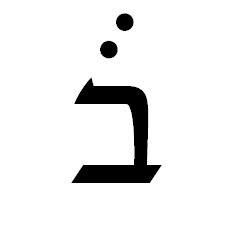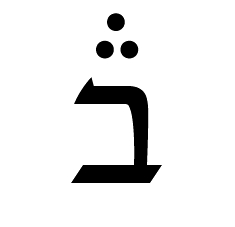Palestinian vocalization
Palestinian vocalization refers to the distinctive practices, traditions, and styles of vocal music and speech patterns found within the Palestinian culture. This encompasses a wide range of vocal expressions, including but not limited to, traditional music, folk songs, oral history, and poetry, as well as specific dialects and linguistic features unique to the Palestinian Arabic language. The vocalization practices are deeply embedded in the social, cultural, and historical contexts of the Palestinian people, serving as a vital means of expressing identity, heritage, and resistance.
History and Cultural Significance[edit | edit source]
The roots of Palestinian vocalization can be traced back to the rich history of the region, where music and oral storytelling have always played a crucial role in community life. These traditions have been passed down through generations, evolving over time while retaining their core identity. The Nakba of 1948, a pivotal event in Palestinian history, had a profound impact on Palestinian culture, including its vocal traditions. Displacement and diaspora led to the spread of Palestinian vocal styles globally, intertwining with various musical influences while maintaining a distinct Palestinian identity.
Styles and Genres[edit | edit source]
Palestinian vocalization encompasses a variety of styles and genres, each with its unique characteristics and social functions. Traditional genres include:
- Dabke: A folk dance accompanied by lively vocal music, often featuring call-and-response patterns between the lead singer and the chorus. - Ataaba: A traditional form of singing that consists of poetic verses, usually expressing melancholy, love, or pride. - Mawwal: A form of vocal improvisation that precedes the main song, characterized by its emotional intensity and melodic flexibility.
Contemporary Palestinian music also reflects the influence of modern genres, blending traditional elements with pop, hip hop, and electronic music, among others. This fusion has given rise to a vibrant music scene that continues to explore and redefine Palestinian identity through vocal expression.
Linguistic Features[edit | edit source]
The Palestinian dialect of Arabic features several distinctive linguistic elements that are evident in its vocalization practices. These include specific phonetic characteristics, vocabulary, and expressions that are unique to the region. The use of certain phrases, proverbs, and poetic forms in songs and oral narratives serves not only as a means of artistic expression but also as a vehicle for preserving language and cultural identity.
Challenges and Preservation[edit | edit source]
Palestinian vocal traditions face challenges related to political conflict, cultural displacement, and globalization. Despite these obstacles, efforts to preserve and promote Palestinian vocalization are ongoing. Artists, musicians, and cultural organizations are at the forefront of these efforts, utilizing both traditional and modern platforms to reach a wider audience. The role of digital media and the internet has been particularly significant in this regard, enabling the global dissemination of Palestinian vocal art.
Conclusion[edit | edit source]
Palestinian vocalization is a vibrant and integral component of Palestinian culture, reflecting the resilience, diversity, and creativity of the Palestinian people. Through its various forms and expressions, it continues to play a crucial role in the preservation of cultural identity, the expression of social and political realities, and the promotion of cultural exchange and understanding.
Search WikiMD
Ad.Tired of being Overweight? Try W8MD's physician weight loss program.
Semaglutide (Ozempic / Wegovy and Tirzepatide (Mounjaro / Zepbound) available.
Advertise on WikiMD
|
WikiMD's Wellness Encyclopedia |
| Let Food Be Thy Medicine Medicine Thy Food - Hippocrates |
Translate this page: - East Asian
中文,
日本,
한국어,
South Asian
हिन्दी,
தமிழ்,
తెలుగు,
Urdu,
ಕನ್ನಡ,
Southeast Asian
Indonesian,
Vietnamese,
Thai,
မြန်မာဘာသာ,
বাংলা
European
español,
Deutsch,
français,
Greek,
português do Brasil,
polski,
română,
русский,
Nederlands,
norsk,
svenska,
suomi,
Italian
Middle Eastern & African
عربى,
Turkish,
Persian,
Hebrew,
Afrikaans,
isiZulu,
Kiswahili,
Other
Bulgarian,
Hungarian,
Czech,
Swedish,
മലയാളം,
मराठी,
ਪੰਜਾਬੀ,
ગુજરાતી,
Portuguese,
Ukrainian
Medical Disclaimer: WikiMD is not a substitute for professional medical advice. The information on WikiMD is provided as an information resource only, may be incorrect, outdated or misleading, and is not to be used or relied on for any diagnostic or treatment purposes. Please consult your health care provider before making any healthcare decisions or for guidance about a specific medical condition. WikiMD expressly disclaims responsibility, and shall have no liability, for any damages, loss, injury, or liability whatsoever suffered as a result of your reliance on the information contained in this site. By visiting this site you agree to the foregoing terms and conditions, which may from time to time be changed or supplemented by WikiMD. If you do not agree to the foregoing terms and conditions, you should not enter or use this site. See full disclaimer.
Credits:Most images are courtesy of Wikimedia commons, and templates, categories Wikipedia, licensed under CC BY SA or similar.
Contributors: Prab R. Tumpati, MD






